
by Susan Ruel | 13 Jul 2022 | Conflict, Educators' Catalog, Eyewitness, Media Literacy, Personal Reflections
Marie Colvin started as a journalist writing for a New York trade union. She ended up a war correspondent who changed people’s lives. Medical staff examine Marie Colvin in Colombo’s eye hospital in Sri Lanka, 17 April 2001. (AP Photo/Gemunu Amarasinghe) A...
Susan Ruel reflects on the life and career of Marie Colvin, an accomplished foreign correspondent killed in Syria in 2012. Colvin reported on major conflicts in Europe, the Middle East, Africa and Asia, believing someone has to go there and see what is happening. “She always told the stories of the ordinary men and women who bore the consequences of the power struggles and wars waged by political leaders,” Committee to Protect Journalists Executive Director Robert Mahoney said. With more journalists murdered or missing this year than in nearly all of 2021, the rights of journalists in war zones cannot be taken for granted.
Exercise: Ask students to discuss how media coverage of war and conflict zones has evolved and what they think accounts for the increased threat against journalists.
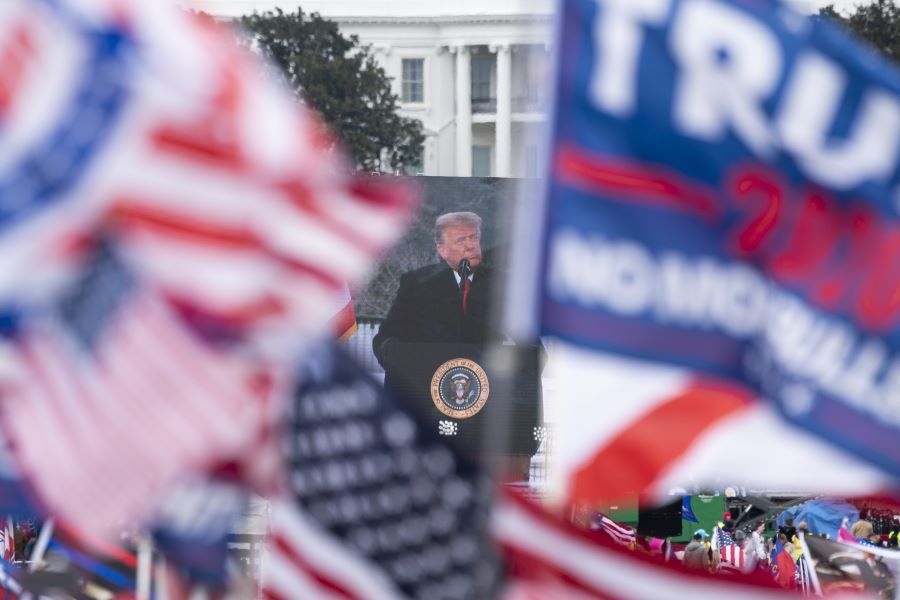
by Gene Gibbons | 11 Jul 2022 | Donald Trump, Eyewitness, Future of Democracy, Joe Biden, Politics, United States
A half century ago, I watched Richard Nixon plunge the U.S. into a constitutional crisis. Now I wonder if American democracy will survive Donald Trump. Former U.S. President Donald Trump as he spoke to supporters from the Ellipse at the White House in Washington on 6...
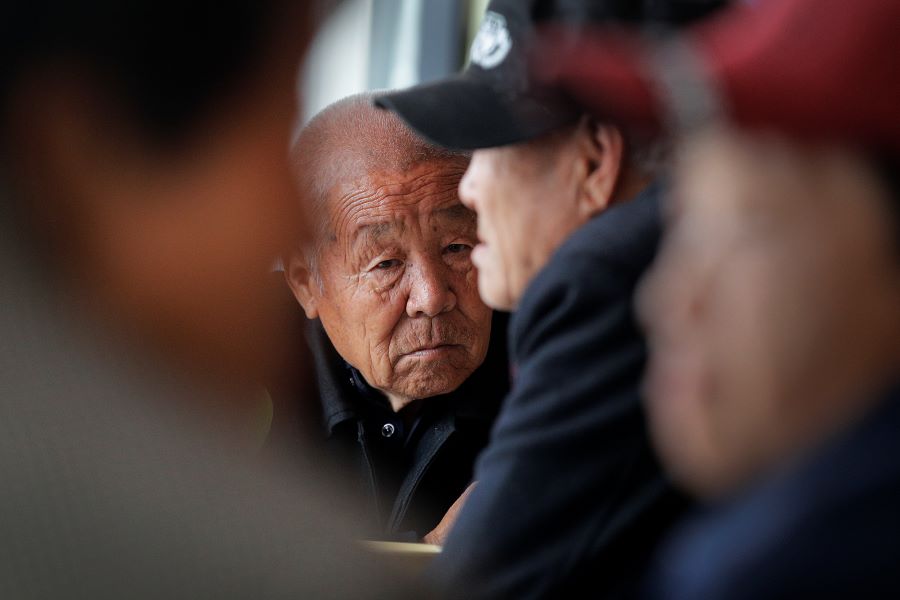
by John West | 24 Jun 2022 | Economy, Future of Democracy, Human Rights, Politics, World
Many have predicted this would be the ‘Asian Century.’ But the world is increasingly fractured as we enter a new “Cold War.” Elderly wait for a free vegetarian lunch in Dingxing, southwest of Beijing, China, 13 May 2021. (AP Photo/Andy Wong) For some...
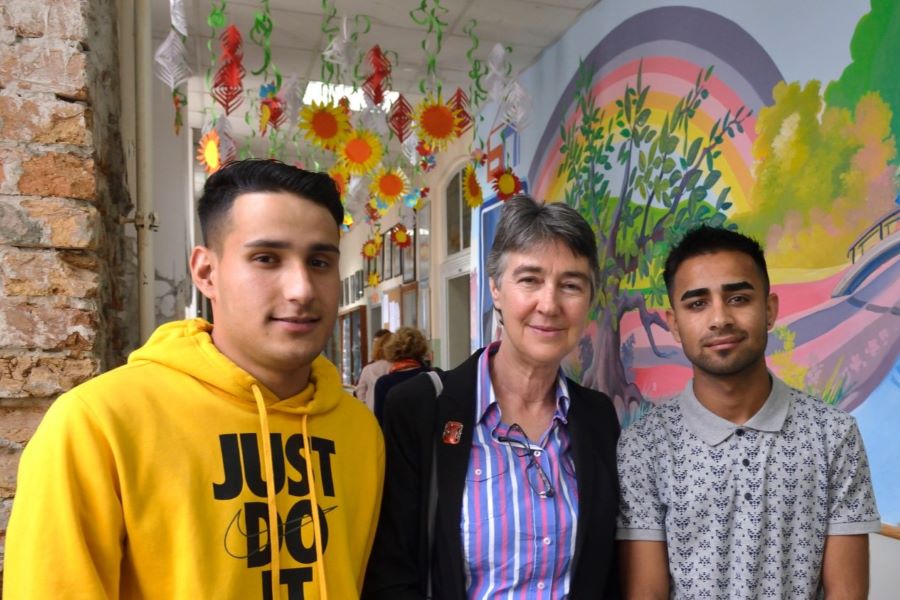
by Helen Womack | 22 Jun 2022 | Conflict, Eyewitness, Human Rights, Immigration, Refugees, Ukraine
Russia’s invasion of Ukraine has pushed the global total of refugees to over 100 million. Refugees are like you and me — but not always welcome. The author (center) with two Afghan refugees at Branko Pešić school in Belgrade, Serbia, in 2019. (Photo courtesy of...
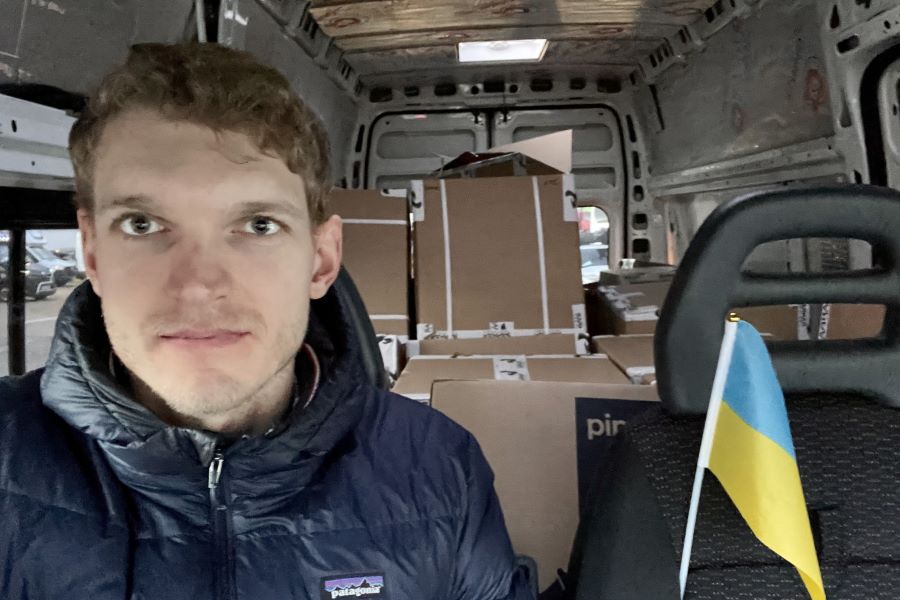
by Jeffrey Mo | 20 Jun 2022 | Conflict, Educators' Catalog, Ukraine, University of Toronto Journalism Fellows
Dmytro Shelukhin is a Ukrainian working for a UK investment bank. But like many émigrés, he is finding meaning helping his home nation fight Russia. Dmytro Shelukhin on the way to Ukraine with war materiel (photo courtesy of Dmytro Shelukhin) For the past eight years,...
Like many big global news stories, the war in Ukraine has released a tsunami of ink, making it difficult for journalists to find a fresh angle. Jeffrey Mo, a fellow at the University of Toronto, manages to break new ground with a simple story about a Ukrainian émigré who sends war matériel to armed forces in his embattled home country. Mo lets Dmytro Shelukhin, a Ukrainian working for a UK investment bank, be the protagonist of the story, which discreetly underscores both the high stakes involved in the conflict and the depth of Ukrainian defiance.
Exercise: Ask your students to identify an issue dominating the news around the world – such as climate change or human rights – and to find a local angle. Then they should interview someone directly involved in the local matter and write a story capturing that person’s experiences and thoughts.
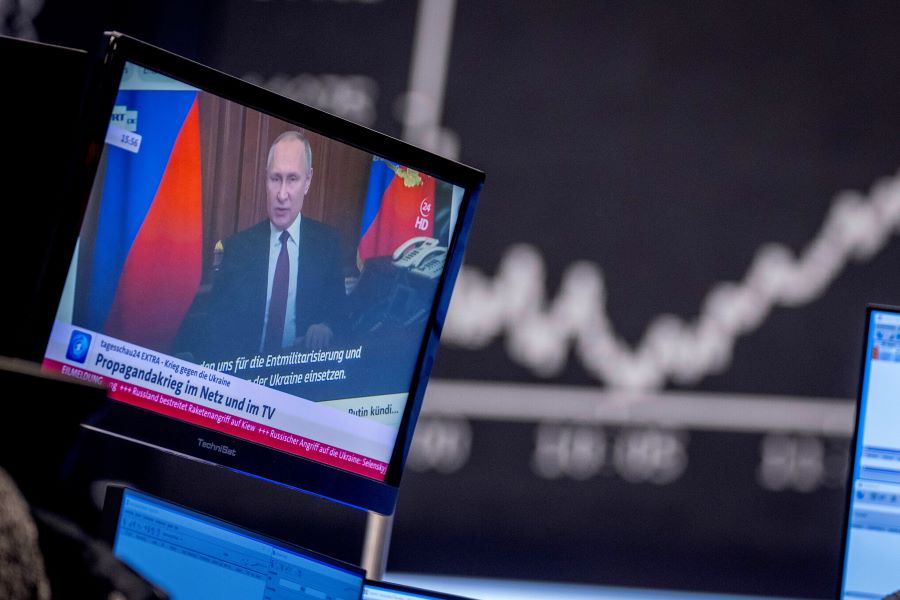
by Alexander Nicoll | 13 Jun 2022 | Conflict, Fake News, Future of Democracy, Media Literacy, Ukraine
How we perceive events like the war in Ukraine depends on our news sources. While never perfect, news media perform invaluable services. Russian President Vladimir Putin appears on a television screen at the stock market in Frankfurt, Germany, 25 February 2022....
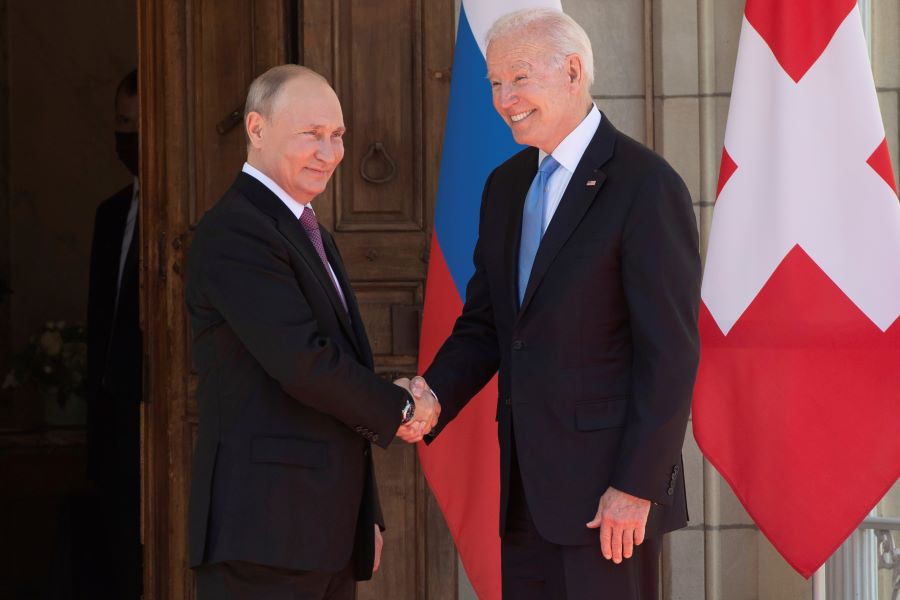
by Jonathan Thatcher | 31 May 2022 | Conflict, Eyewitness, Future of Democracy, Human Rights, Politics, Ukraine
Dictators can be loathed. But their abrupt departure from office can trigger turmoil because they have put themselves alone at the centre of power. U.S. President Joe Biden and Russian President Vladimir Putin in Geneva, Switzerland, 16 June 2021 (Saul Loeb/Pool via...
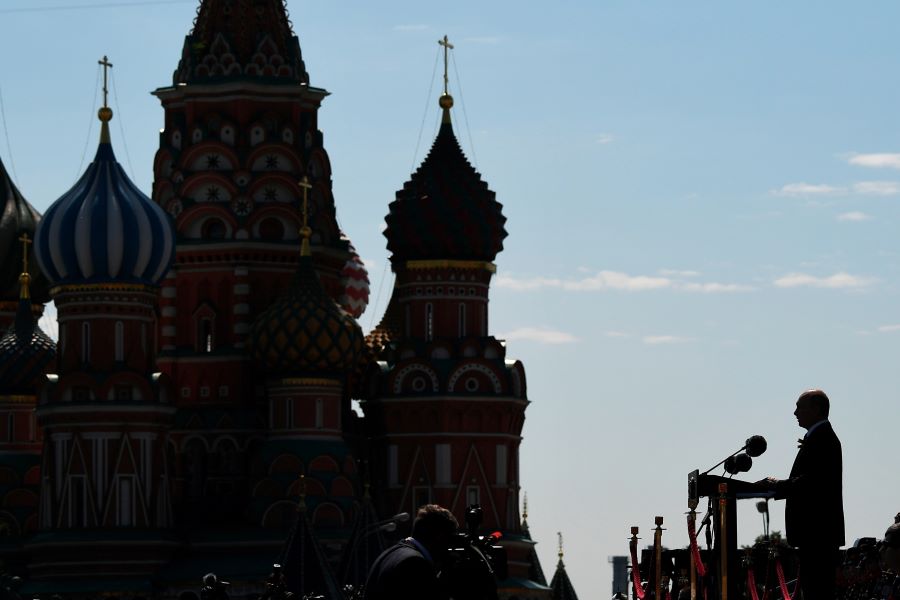
by Elaine Monaghan | 13 May 2022 | Conflict, Future of Democracy, Human Rights, Ukraine
Many Russians dream of a democratic future. But an onslaught of propaganda shields Vladimir Putin from opponents and obscures the truth. Russian President Vladimir Putin delivers a speech during the Victory Day military parade marking the 75th anniversary of the Nazi...

by Alan Wheatley | 3 May 2022 | Conflict, Economy, Globalization, Trade, Ukraine
Russia’s invasion of Ukraine is likely to prompt firms to re-examine supply chains and bring business closer to home, even if that means lower profits. Pipeline taps at a chemical plant near Cologne, Germany, 6 April 6, 2022. Germany relies heavily on imports of...
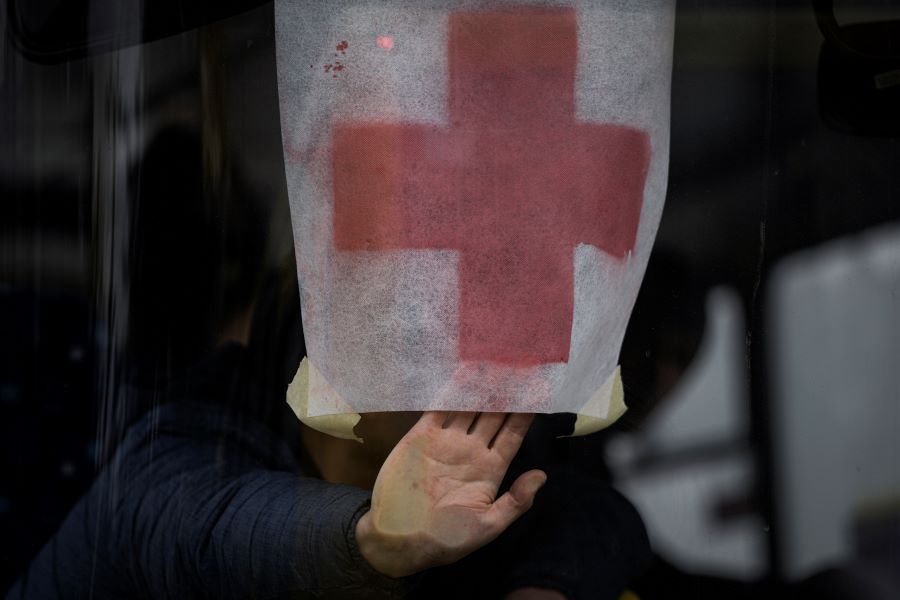
by Katharine Lake Berz and Daneese Rao | 28 Apr 2022 | Conflict, Educators' Catalog, Human Rights, Refugees, Ukraine, University of Toronto Journalism Fellows
For more than 150 years, the Red Cross has remained neutral in wars. Today, it still defends that stance against critics as Russia ravages Ukraine. A man presses paper with a red cross on it against the windshield of a bus as civilians are evacuated from Irpin, on the...
For many people, the war in Ukraine seems one of the latest litmus tests of ideological purity: One side is good, the other side bad. So it is with politics in many countries: One side is right, the other wrong. Nowadays it can be difficult, especially for youth, to understand why diplomats speak to all sides in an armed conflict, or why the Red Cross would remain neutral in Ukraine. In their story, Katharine Lake Berz and Daneese Rao, fellows at the University of Toronto, examine why the 159-year-old Red Cross, true to tradition, has refused to condemn Russia’s invasion so it can offer aid to victims on all sides of the conflict. It’s a valuable lesson for a world hungry for harmony.
Exercise: Have your students debate this resolution: “The Red Cross should condemn Russia over its invasion of Ukraine.”










